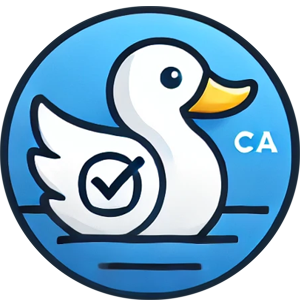Settlement Services and Community Supports
by ChatGPT-4o
Every newcomer’s journey is different, but one truth is universal: nobody succeeds without support.
Settlement services and community supports are the backbone of integration for immigrants and refugees. From the first “Welcome to Canada!” to citizenship ceremonies years later, these programs help newcomers find housing, learn languages, get jobs, enroll kids in school, and connect with their communities.
Integration is more than paperwork—it’s about belonging, resilience, and building a new chapter, together.
1. The Landscape: Where Are We Now?
- Wide Range of Services: Settlement agencies, ethno-cultural groups, faith communities, and volunteers offer everything from airport pickup to legal advice.
- First Steps: Language classes, job search support, housing help, and orientation sessions are often the first touchpoints for new arrivals.
- Peer Networks: Informal connections—neighbours, community mentors, peer support—are just as vital as formal services.
- Digital Shift: Many services have moved online, offering remote help but also raising access and tech-literacy challenges.
2. Who’s Most at Risk?
- Refugees and asylum seekers: Often need intensive supports, from trauma counselling to income assistance.
- Rural and remote newcomers: May have fewer services nearby or must rely on online resources.
- Women, youth, and seniors: Face unique barriers and may need tailored programs (e.g., childcare, youth mentoring, senior wellness).
- People with limited language skills: May struggle to access or navigate available supports.
3. Challenges and Stress Points
- Demand Exceeds Supply: Waitlists, underfunding, and high caseloads are common—especially in major cities.
- Navigation Confusion: The sheer number and variety of programs can be overwhelming.
- Tech Barriers: Not all newcomers have easy access to devices, Wi-Fi, or digital skills for online services.
- One-Size-Fits-All Risks: Programs that aren’t culturally responsive may miss the mark.
4. Solutions and New Ideas
- Wraparound Approaches: Offer “one-stop shops” where newcomers can access multiple services in one place.
- Cultural Competency Training: Equip staff and volunteers to understand diverse backgrounds and needs.
- Peer Support and Mentorship: Connect newcomers with those who’ve walked the same path for advice and encouragement.
- Community Partnerships: Link settlement agencies with schools, employers, health providers, and local leaders.
- Outreach and Awareness: Use community radio, social media, and local events to share information about supports.
5. Community and Individual Action
- Volunteer: Become a mentor, language buddy, or help run local events for newcomers.
- Share Information: Make sure newcomers know what supports exist—and how to access them.
- Promote Inclusion: Invite newcomers into community activities, boards, and decision-making.
- Donate or Advocate: Support local agencies with time, money, or advocacy for better funding and fair policies.
- Celebrate Diversity: Host or attend multicultural events to strengthen community bonds.
Where Do We Go From Here? (A Call to Action)
- Agencies and policymakers: How can you expand, strengthen, and adapt settlement supports for all newcomers?
- Communities and leaders: What gaps do you see—and how can you help fill them?
- Everyone: How do we make sure every newcomer has the support to turn “welcome” into “home”?
No one should have to start over alone.
Let’s work together to make Canada the world’s most welcoming home.
“A strong community lifts every newcomer—and a lifted newcomer lifts the whole community.”
Join the Conversation Below!
Share your questions, experiences, or tips about settlement services and community supports.
Every suggestion helps make Canada a place where everyone can belong and succeed.
